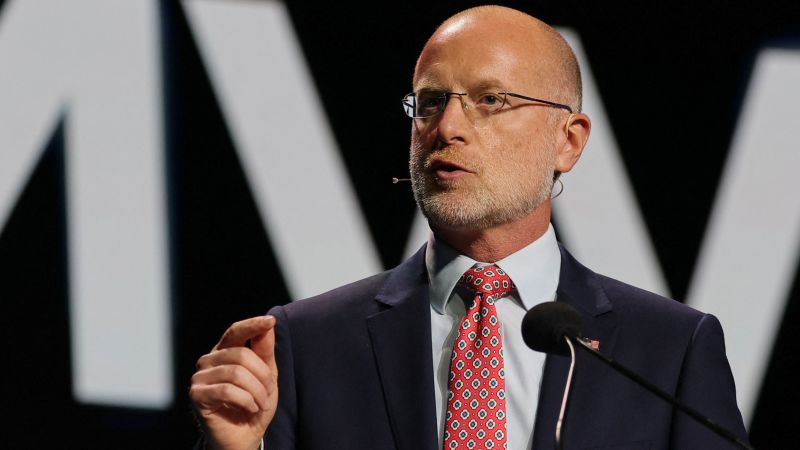CNN
—
Brendan Carr, the top communications regulator, doesn’t view his investigation into CBS as “a threat” to the broadcaster.
Sitting down with CNBC host Sara Eisen at the Milken Institute’s Global Conference in Los Angeles on Monday, Carr called the federal inquiry into “60 Minutes” over its October interview with then-Vice President Kamala Harris a “penalty that’s in the Communications Act.” The Federal Communications Commission is investigating whether the program engaged in so-called “news distortion.”
Carr stressed that trust in the media is at an all-time low, laying the blame not on local TV stations, whose licenses are set by the FCC, but, rather, at the feet of larger broadcasters.
“What we’ve seen is you’ve got national news media — ABC, NBC, CBS — and they’re exercising more and more control over those local TV stations,” Carr said. “I don’t think that’s a good thing for the country, so we’re trying to reverse that.”
Carr’s clarification that the threats are actually so-called penalties under the Communications Act follows months of posturing and attacks against legacy media from the White House and the FCC. Those attacks have been spearheaded, in large part, by President Donald Trump. Even before his reelection, Trump repeatedly pushed to revoke CBS’ license. And the president is currently looking to muscle through a settlement in his lawsuit with the broadcaster. Since 2022, Trump has called for every major US TV news network to be punished.
CBS is not the only national broadcaster accused of news distortion. In April, Carr took to X to accuse NBC of “misleading the American public” by allegedly styling Kilmar Armando Abrego as a regular “Maryland man.”
“Comcast knows that federal law requires its licensed operations to serve the public interest,” Carr said in his post. “News distortion doesn’t cut it.”
When pressed on the NBC allegations on Monday, Carr claimed that local stations have told him they want “more freedom to cover the issues that matter in their local communities,” and that the so-called penalties aim to provide local stations with such liberties.
“But, the relationships that they have with the national programmers (have) been really constrained, so that’s an issue that we’re looking at,” Carr said.
Despite accusing the larger broadcasters of “controlling so much of what goes on over the airwaves,” the FCC chair did not explain how pulling licenses would benefit local stations.
Under affiliate agreements, local TV stations are permitted to carry a network’s programming. While national networks are not licensed, the FCC grants local stations eight-year licenses. It’s been decades since the FCC pulled a license — and “that’s part of the issue,” Carr claimed.
The complaint against CBS, filed by a pro-Trump group that alleged news distortion, was initially tossed out alongside separate complaints against NBC, CBS and Fox News by then-FCC Chair Jessica Rosenworcel in January before her resignation. Under a week later, Carr reinstated all of the complaints, save the one against Fox News, in less than two days after Trump returned to the Oval Office
Meanwhile, the FCC is also investigating CBS parent Paramount’s pending merger with Skydance Media. Carr emphasized on Monday that the license investigation and the president’s lawsuit into “60 Minutes” are separate from the merger probe — comments that reflect Carr’s recent attitude toward the deal and mark a departure from his previous stance.

